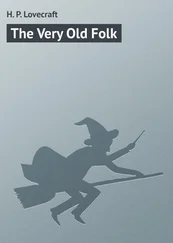“Maybe Pete went to see him at a Senators game when he was coachin’, but if he did my father never mentioned it.”
“He saw you, and Peg, and Annie.”
“That’s why he came home. He called my mother and found out I was goin’ in the army and he said he’d come home and be around if somethin’ needed fixin’. He took a room up near the ball park. He’d come down to the house once a week and sit with my mother, bring her a pint of vanilla ice cream, or pineapple sherbet, talk an hour, have a meal with us, then disappear for another week. But he’d come by in a minute if Ma called him. He shoveled snow, cut the grass for her, put up screens and storm windows, fixed a busted asbestos pipe on the furnace.”
“He was a strange guy.”
“He was an all-right guy,” Billy said with an edge to his voice.
“I didn’t say he wasn’t.”
“Everybody else in this joint did.”
“I just told you that wasn’t true. Stick around, Billy. You’ll learn something about your relatives you didn’t know.”
“Yeah,” he said.
But I knew I’d hooked him. I took him into Peter’s studio and found the paintings Peter wanted as props when he delivered his remarks to the assembled kin. Billy looked at the paintings the way he looked at everything else in the house: not interested. Then we carried them, one by one, down the hallway to the dining room.
That Malachi was still influencing our lives like this supported my idea that we are never without the overcoats, however lice-ridden, of our ancestors. This luncheon was going to be an expressionistic occasion, offering graphic imaginings of where we came from, what we might expect of ourselves (and our children), and what we might do to our greatest loves, given our inherited propensities. I tried to imagine whether and, if so, why Malachi was predisposed to disaster, and all I could do was project myself backward into my own disturbed history, into the isolation where I had been able to triumph privately in social, financial, marital, and artistic realms, no failure possible in that utopia where all eccentricity is justified, where ineffectuality is not only acceptable, but desirable as a badge of defiance, where there is no need to engage the actual world because the private world is always sufficient to the day. Reality conquered by the ego: Malachi’s story precisely.
I now like to think that I am coming out of this benighted condition, and in my own peculiar way am again an engaged citizen of the bright day, working within the race. I see evidence of this in my ability to function in the publishing world without either the hem-kissing subservience of the acolyte, or the wound-licking reverie of the early failure.
I feel pride in my restrained reaction to Giselle’s pregnancy, never once voicing those Strindbergian doubts that had dropped into my mind like henbane: never inquiring whether it truly was I who seeded her furrow; never offering the suggestion that it was perhaps an anonymous creativist at Life , or possibly Quinn the traveler who had left his enduring mark on her during one of his New York visits. Did I suggest, as the young Strindberg ruffian, Nojd, put it, that “it wouldn’t be much fun slaving all your life for another chap’s brat”? No, I did not. If it was Quinn who’d done the deed, then at least the Phelan ontogeny was now at work in Giselle’s inner sanctum, and I might become father to my first cousin twice removed. But I am no more likely to have certitude on any of this than Nojd, or Peter Phelan.
Molly pulled the doorbell and stood on top of the stoop with her arms full of groceries. She turned to the curb, where Alice Shugrue waited behind the wheel of her Chevrolet, idling until Molly had gained proper access to the homestead; and then I opened the door and took a bag from Molly (“Be careful, there’s breakables,” she said). I hugged her and bussed her cheek, then waved to Alice.
“Come in and see us when you come back for her,” I said, “and we’ll catch up on all your news.” Alice smiled and waved me down, saying, “You’re not to be trusted with my news, now that you’re writing a book,” and off she went.
Molly stepped into the hallway and tapped the bag of groceries I was holding. “You’re not to be trusted with breakables either,” she said. “I’ve seen you with dishes in the hotel kitchen.”
“There are things I never dropped,” I said, “so get your dirty tongue off me.”
Molly, kittenish, kissed my cheek with her arms full as we moved toward the kitchen. “I miss this house,” she said.
“Well, come back to it, then,” I said.
“Easy to say.”
“Easy to do. There’s change afoot in the world.”
“Afoot me foot,” said Molly. “All that’ll change this place is an earthquake.”
“Exactly what we’ve got planned for lunch,” I said.
“It’s a scheme, I knew it. What’s he up to?”
“I’ll tell you when it’s time to tell you.”
I thought Molly looked well, though a bit more frail than when I’d last seen her. Her north-country exile seemed to be sapping her energy, but she was wearing one of her dressy summer dresses, the pink one, so I sensed she was trying to rekindle her old self for the occasion. We put the groceries on the kitchen table and I then took her by the elbow and moved her toward the dining room and Billy. Her gaze went instantly to Banishing the Demons on the wall, then to The Conspiracy , which I’d leaned against the back staircase. She had seen, and fully understood, the content of both paintings, but made no comment on their presence. She turned and looked at Billy in his plaster cast.
“It’s a long time since I’ve seen your handsome mug, Billy boy,” she said. “I heard you might be here today.”
“That’s more than I heard. Who told ya that?”
“I’m no squealer, kiddo,” Molly said. “And whatever did you do to your leg? Are you all right?”
“I can’t kick,” Billy said. “You’re lookin’ good, Moll. How’s the old bareedis?”
“I’m fine in all respects, and I’ll answer no more impertinent questions.”
“How’s Saratoga?”
“The hotel is busy. The track opens next week.”
“But no more gamblin’ casinos.”
“None that I hear of. It’s not like it used to be.”
“Nothin’ is,” Billy said.
“How many are coming for lunch, Orson? We have to set the table.”
“Us three and Peter, and Peg is coming with Roger Dailey, the lawyer, and Giselle. Seven.”
“Giselle is coming?”
“Peter invited her. She’s been up fairly often lately.”
“How is she?”
“She’s pregnant. I guess that makes it eight.”
“Oh,” said Molly, “oh.” And she looked at me with that hybrid smile of hers: knowing smile of love, and comprehension, and loss.
“First tremor of the earthquake,” I said.
“Hey,” Billy said, “you gonna be a papa.”
“Looks that way,” I said.
“The lawyer,” said Molly “Why is the lawyer coming?”
“I’ll tell you when it’s time to tell you,” I said.
“Well, I’ll tell you what it’s time for. It’s time to make lunch. Bring me the potato dish, two big platters, a vegetable dish, and the pickle and jelly dishes. And the bread plate. And set the table with whatever’s left of the good china.”
Molly’s reference was to the remnants of a set of china that Peter had bought for Kathryn with his mustering-out pay from the first war, a belated acknowledgment that he had been partly responsible for Francis’s fall into the china closet. And I wondered how much of that episode in his father’s life Billy knew, and I decided he probably knew nothing at all.
“Have you taken a good look at these paintings?” I asked Billy, indicating The Conspiracy and the Demons.
Читать дальше












